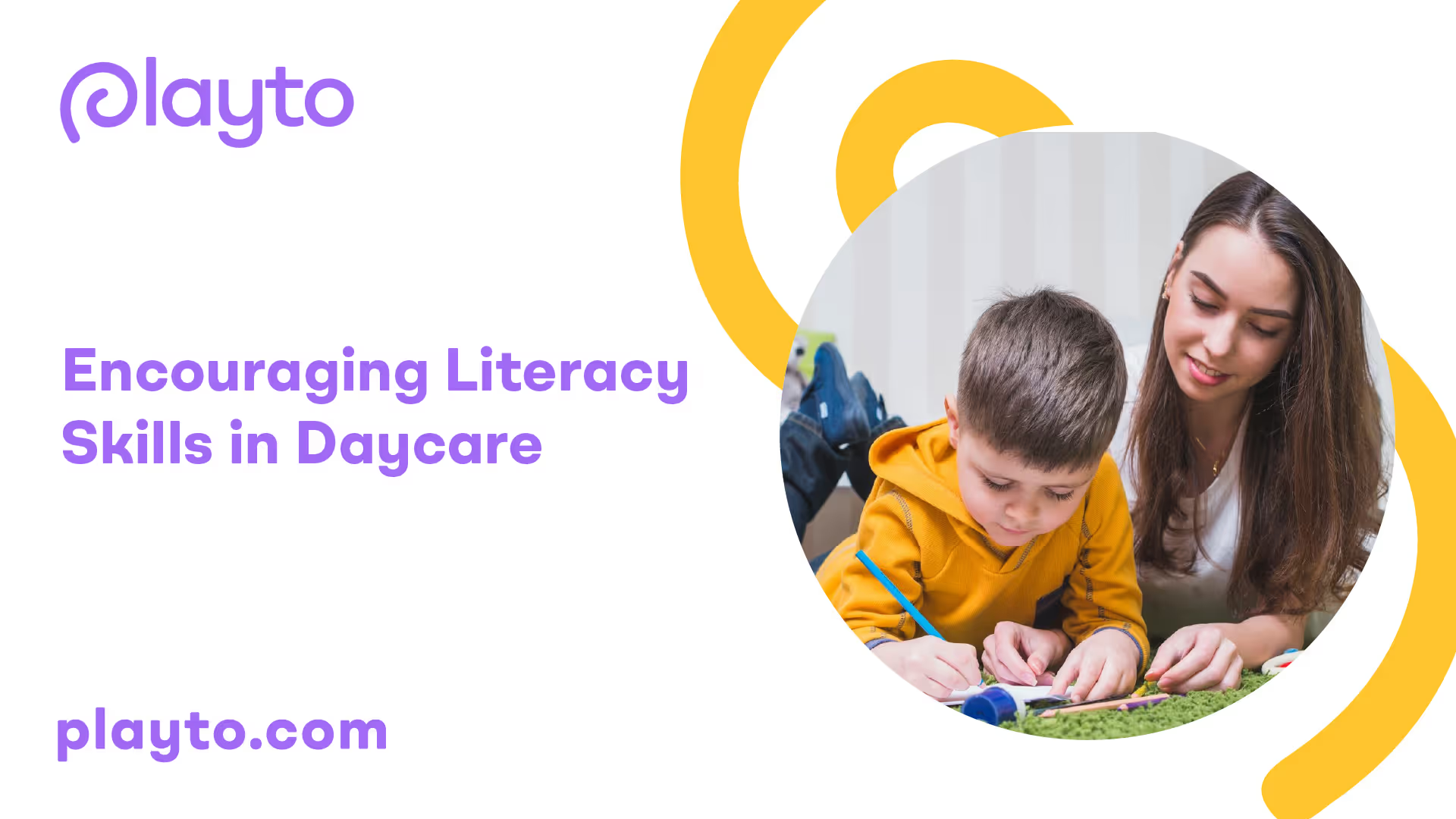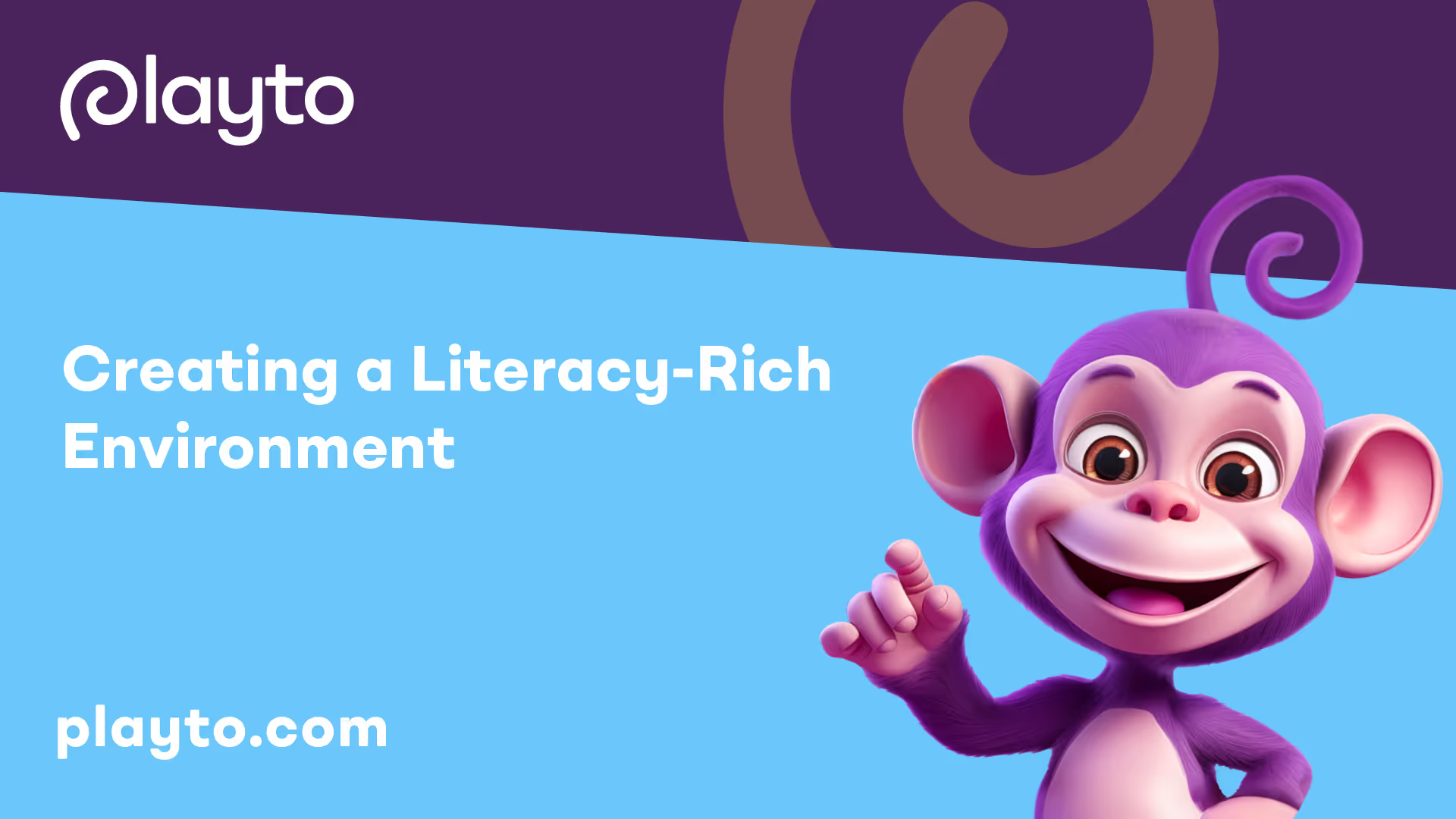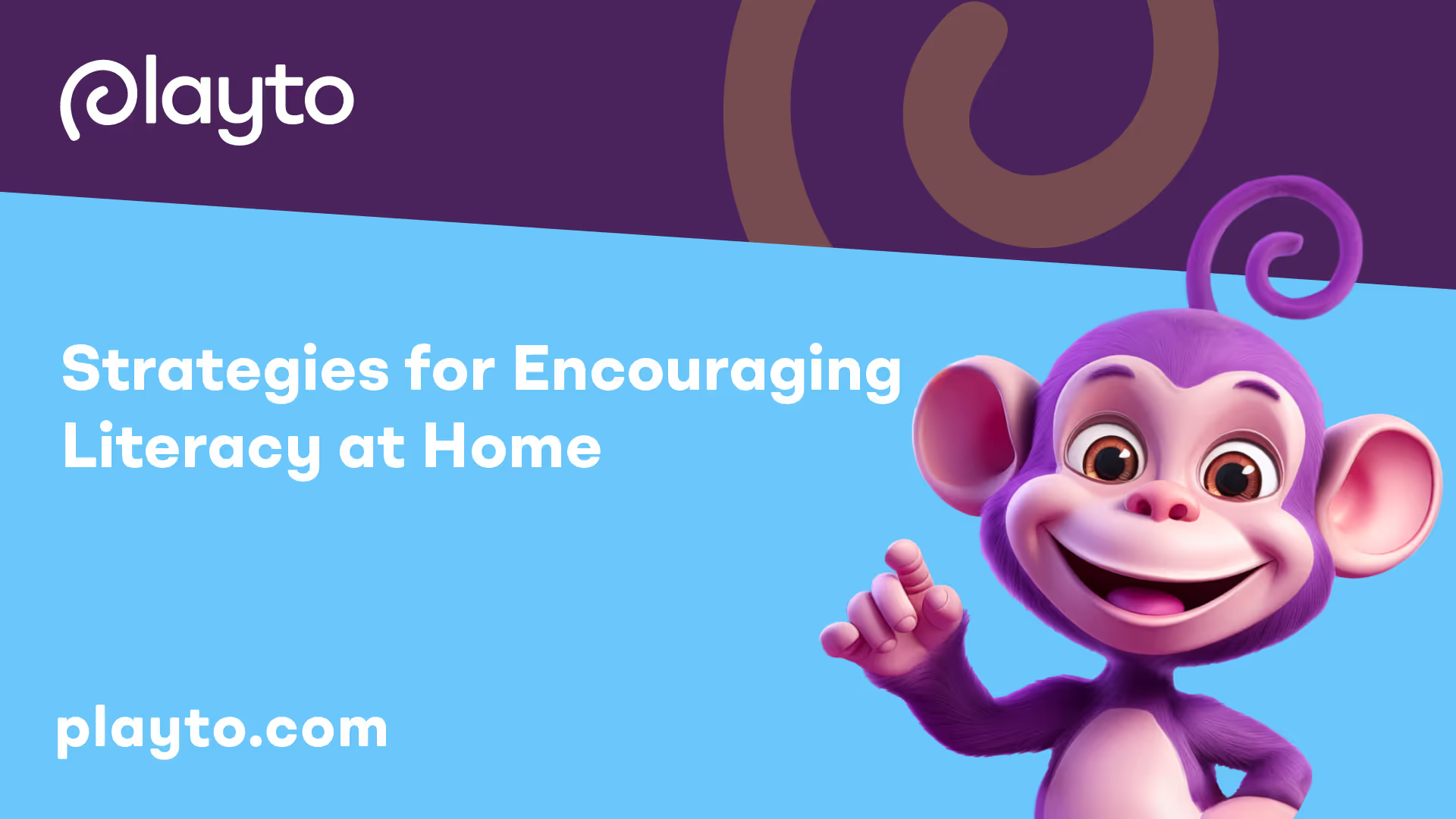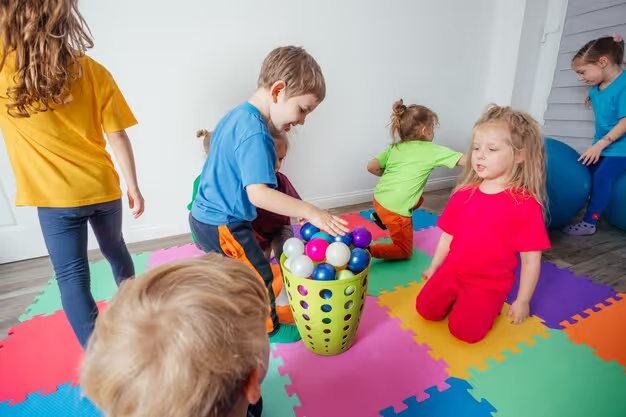
Promoting Literacy in Daycare
In a daycare setting, promoting literacy development is crucial for laying the foundation of reading success. By focusing on the importance of literacy and establishing early foundations, daycare providers can create an environment that fosters a love for reading and supports children's literacy skills.
Importance of Literacy Development
Literacy development plays a vital role in a child's overall growth and future academic success. It encompasses various skills, including phonetic awareness, alphabet knowledge, and print awareness. According to Vanco Payments, strong phonetic awareness skills are essential for children to learn to read and write successfully. When children have a solid understanding of the relationship between letters and sounds, they are better equipped to decode words and develop reading fluency.
Additionally, alphabet knowledge is a strong predictor of later reading success. Engaging activities that introduce children to letters and their sounds can help develop familiarity and set a foundation for reading [1]. Print awareness, another critical aspect of literacy development, refers to a child's understanding of how print works, including concepts like letters, words, and sentences. Developing print awareness skills prepares children to begin reading and enhances their reading achievement [1].
Early Foundations for Reading Success
Creating a literacy-rich environment is key to promoting early literacy development. Daycare providers can incorporate various strategies to foster a love for reading and support children's literacy skills. Some effective approaches include:
- Encouraging Vocabulary Growth: Building a rich vocabulary is essential to promote literacy development. Providing opportunities for children to engage in conversations, read books, and explore new words helps expand their vocabulary. Introducing sight words, a foundational set of about 40 words, can set preschoolers up for success in kindergarten [1].
- Fostering Narrative Skills: Narrative skills in preschool are predictive of later reading comprehension abilities. Engaging activities that involve storytelling, retelling stories, and discussing the sequence of events help children develop narrative skills and comprehension [1]. Encouraging children to express their thoughts and ideas verbally and through drawing supports their ability to understand and create narratives.
By emphasizing the importance of literacy development and establishing early foundations, daycare providers can create an environment that promotes a love for reading and supports children's literacy skills. These early efforts lay the groundwork for future reading success and set children on a path to becoming lifelong readers.

Creating a Literacy-Rich Environment
In a daycare setting, creating a literacy-rich environment is essential for promoting early literacy development and setting a strong foundation for reading success. Two key aspects of creating such an environment are encouraging vocabulary growth and fostering narrative skills.
Encouraging Vocabulary Growth
Building a rich vocabulary is crucial in promoting literacy development among young children. Learning a foundational set of sight words can set preschoolers up for success in kindergarten [1]. Here are some strategies to encourage vocabulary growth in a daycare setting:
- Read Aloud: Engage children in read-aloud sessions with a variety of books. Choose books that expose them to new words and concepts, and encourage active participation by asking questions and discussing the story.
- Labeling: Label objects in the daycare environment to emphasize the importance of language, reading, and writing. This helps children make connections between spoken and written words, expanding their vocabulary.
- Nursery Rhymes and Songs: Incorporate nursery rhymes, songs, and fingerplays into daily activities. These activities promote language and early literacy development, while also making learning enjoyable.
- Conversations: Engage children in meaningful conversations throughout the day. Encourage them to express their thoughts, ask questions, and engage in discussions. This helps develop their language skills and expands their vocabulary.
Fostering Narrative Skills
Narrative skills involve the ability to understand and tell stories. Developing strong narrative skills is crucial for comprehension, language development, and overall literacy growth. Here are some strategies to foster narrative skills in a daycare setting:
- Storytelling: Encourage children to tell their own stories, whether through drawing, puppetry, or verbal storytelling. Provide opportunities for them to share their stories with peers and adults.
- Pretend Play: Encourage dramatic play and role-playing activities, which allow children to create and act out their own narratives. Provide props, costumes, and open-ended materials to support their imaginative play.
- Open-Ended Questions: Ask open-ended questions that encourage children to think critically and express their ideas. This helps develop their storytelling abilities and encourages them to use language creatively.
- Book Discussions: After reading a book, engage children in discussions about the story, characters, and events. Encourage them to share their thoughts, predict what might happen next, and connect the story to their own experiences.
By creating a literacy-rich environment that focuses on vocabulary growth and narrative skills, daycare providers can foster a love for reading, enhance language development, and lay the foundation for future literacy success. Remember, each child progresses at their own pace, so providing a supportive and engaging environment is key to their individual literacy journey.

Strategies for Encouraging Literacy at Home
Parents play a vital role in fostering literacy skills in their children. By engaging in various activities and creating a language-rich environment at home, parents can support and enhance their child's literacy development. Here are two effective strategies for encouraging literacy at home.
Reading Activities with Parents
Engaging in joint reading activities with parents is a powerful way to support early literacy development in children. Activities such as reading together, drawing, singing, storytelling, reciting, and playing games can have a significant impact on a child's reading ability, comprehension, language skills, and overall interest in reading [2].
When reading together, parents can ask open-ended questions to promote critical thinking and encourage discussions about the story. This helps develop a child's comprehension skills and fosters a deeper understanding of the text. Additionally, parents can take turns reading aloud, modeling proper pronunciation and intonation.
To further enhance literacy development, parents can incorporate nursery rhymes and audiobooks into their reading activities. Nursery rhymes are beneficial for language and early literacy development, while audiobooks expose children to a variety of narratives and increase the amount of language they hear.
Utilizing Different Languages
Encouraging the use of different languages at home can have a positive impact on a child's literacy development. This approach helps grow a child's vocabulary, facilitates connections with their cultural background, and increases their curiosity and readiness to learn at school [2].
For children who come from multilingual households, exposure to their home language alongside English can support literacy learning. Learning opportunities in their home language can provide a strong foundation for English language acquisition. Parents can read books, tell stories, and engage in conversations with their child in their home language, fostering a love for language and reading.
In addition, parents can create a print-rich environment by labeling objects in the home. Labeling items in different languages emphasizes the importance of language, reading, and writing. It also helps children make connections between words and their meanings, further reinforcing their literacy skills.
By engaging in reading activities with parents and utilizing different languages at home, children can develop strong literacy skills and a love for reading. These strategies create a nurturing environment that supports language development, vocabulary growth, and overall literacy success. To learn more about promoting literacy skills in daycare, check out our other articles on encouraging positive self-image in daycare and encouraging healthy eating habits in daycare.
Enhancing Literacy Skills in School-Age Kids
As children grow and progress through their daycare years, it becomes crucial to continue fostering their literacy skills. By providing opportunities for independent reading, inviting guest readers, and engaging in writing activities, daycare centers can play a significant role in enhancing literacy skills in school-age kids.
Independent Reading Time
Scheduling dedicated time for independent reading is a powerful way to promote literacy in school-age children. During this time, children have the opportunity to explore books of their choosing and engage in self-directed reading. Independent reading helps children develop a love for books, improves reading comprehension, and enhances vocabulary acquisition.
To encourage independent reading, daycare centers can update their library with a diverse range of books that cater to the interests and reading levels of the children. Regularly adding new books ensures that children always have fresh options to explore. Additionally, daycare centers can reward students for reading books, whether through incentives or recognition, to further motivate their engagement with independent reading.
Guest Readers and Writing Activities
Inviting guest readers to the daycare center can be an exciting and enriching experience for school-age children. Guest readers can be parents, community members, or even local authors. These individuals can read aloud to the children, sparking their imagination and love for storytelling. The presence of guest readers can also expose children to different reading styles and voices, enhancing their overall literacy experience.
Writing activities are another valuable way to enhance literacy skills in school-age kids. By encouraging children to write stories, journal entries, or even letters, daycare centers can foster creativity, language development, and critical thinking. Writing activities can be incorporated into various aspects of the daycare program, such as art projects, group discussions, or dedicated writing time.
By incorporating independent reading time, inviting guest readers, and engaging in writing activities, daycare centers can create a literacy-rich environment that promotes a love for reading and writing. These strategies provide school-age children with opportunities to explore literature, develop language skills, and express their ideas through writing.
Assessment and Monitoring Progress
Assessing and monitoring children's progress in daycare is essential for understanding their literacy development and ensuring that appropriate interventions are in place. Assessment includes both formal and informal measures as tools for monitoring children's progress toward desired goals [3]. Let's explore the importance of both formal and informal assessment methods and the involvement of parents in the assessment process.
Formal and Informal Assessment
Formal assessment involves systematic and structured evaluation of children's literacy skills using standardized tests or assessments. These assessments provide valuable insights into a child's overall literacy development and can be helpful in identifying areas where additional support may be needed. Examples of formal assessments include standardized reading assessments, language proficiency tests, and developmental checklists.
On the other hand, informal assessment involves ongoing observations, documentation, and analysis of children's literacy skills in everyday activities and interactions. This type of assessment allows educators to gather information about children's progress in a natural and authentic context. It can include observing children during storytime, noting their participation in literacy-related activities, and documenting their use of language and vocabulary during play.
Both formal and informal assessments have their strengths and limitations. While formal assessments provide standardized data and benchmarks, informal assessments provide a more holistic view of a child's literacy development in real-life situations. It's important to use a combination of both types of assessments to get a comprehensive understanding of each child's progress.
Involving Parents in Assessment
In daycare settings, involving parents in the assessment process is crucial. Parents have unique insights into their child's abilities, interests, and experiences, and their input can contribute to a more accurate assessment of a child's literacy development. Collaborating with parents helps create a partnership between educators and families, ensuring that assessment decisions are made in consultation with families [3].
Educators should regularly communicate with parents about their child's progress, sharing observations, assessment results, and areas of strength and growth. This collaboration helps parents understand their child's literacy development and provides opportunities for them to support their child's learning at home. By involving parents in the assessment process, educators can gain a more comprehensive picture of a child's literacy skills and tailor their instruction accordingly.
To facilitate parent involvement in assessment, educators can schedule regular parent-teacher conferences, provide written progress reports, and offer resources and suggestions for supporting literacy development at home. By fostering open and ongoing communication, educators and parents can work together to create a supportive and enriching literacy environment for children.
Assessment and monitoring progress play a vital role in promoting literacy skills in daycare. By utilizing both formal and informal assessment methods and involving parents in the assessment process, educators can gain valuable insights into children's literacy development and provide targeted support to help them succeed.
Supporting Children with Disabilities
In a daycare setting, it is essential to provide support and tailored strategies to children with disabilities to help them develop their literacy skills. By implementing effective literacy strategies and individualized activities, educators can create an inclusive environment that fosters learning and growth for all children.
Literacy Strategies for Students
For students with disabilities, a literacy-rich environment is crucial to provide access to experiences they may have missed in their preschool years. This environment stimulates their participation in language and literacy activities, helping them gain an understanding of the utility and function of oral and written language [4].
To support literacy development in children with disabilities, teachers can focus on the following strategies:
- Multisensory Approaches: Incorporate multiple senses, such as sight, sound, and touch, into literacy activities to engage different learning modalities. For example, using tactile materials, visual aids, and auditory cues can enhance the learning experience.
- Explicit Instruction: Provide clear and direct instruction, breaking down complex concepts into manageable steps. This helps students with disabilities understand and apply literacy skills effectively.
- Differentiated Instruction: Tailor instruction to meet individual students' needs. This involves adapting teaching methods, materials, and activities to accommodate diverse learning styles and abilities.
- Assistive Technology: Utilize assistive technology tools, such as text-to-speech software, speech recognition programs, or electronic graphic organizers, to support students in their literacy development.
By implementing these strategies, educators can create a supportive environment that promotes literacy growth in children with disabilities.
Individualized Literacy Activities
Individualized literacy activities play a crucial role in supporting children with disabilities. These activities can be tailored to meet students' specific needs, allowing teachers to create both independent and directed tasks to enhance understanding of concepts like print and words, linguistic and phonemic awareness, and vocabulary development [4].
Here are some examples of individualized literacy activities for children with disabilities:
- Adapted Books: Create adapted books with simplified text and visual supports to match the individualized learning needs of each child. These books can include interactive elements or tactile features to engage students and enhance their understanding of the story.
- Word Games: Engage students in fun word games and activities that focus on building phonemic awareness, such as rhyming games, sound matching, or syllable segmentation. These activities help students develop their phonological skills and enhance their ability to manipulate sounds.
- Personalized Writing: Encourage students to engage in personalized writing activities, such as journaling, creating stories, or writing letters. Providing opportunities for self-expression and creative writing helps students build their writing skills and develop confidence in their abilities.
- Shared Reading: Engage in shared reading experiences with individual students, allowing them to actively participate and interact with the text. This can involve pausing to discuss the story, asking questions, or making connections to their own experiences.
By implementing individualized literacy activities, educators can address the unique needs of children with disabilities and support their literacy development effectively.
Creating a literacy-rich environment and implementing tailored strategies and activities are essential in supporting children with disabilities in their literacy journey. By providing a nurturing and inclusive environment, educators can empower children with disabilities to develop their literacy skills, fostering a love for reading and learning that will benefit them throughout their lives.
